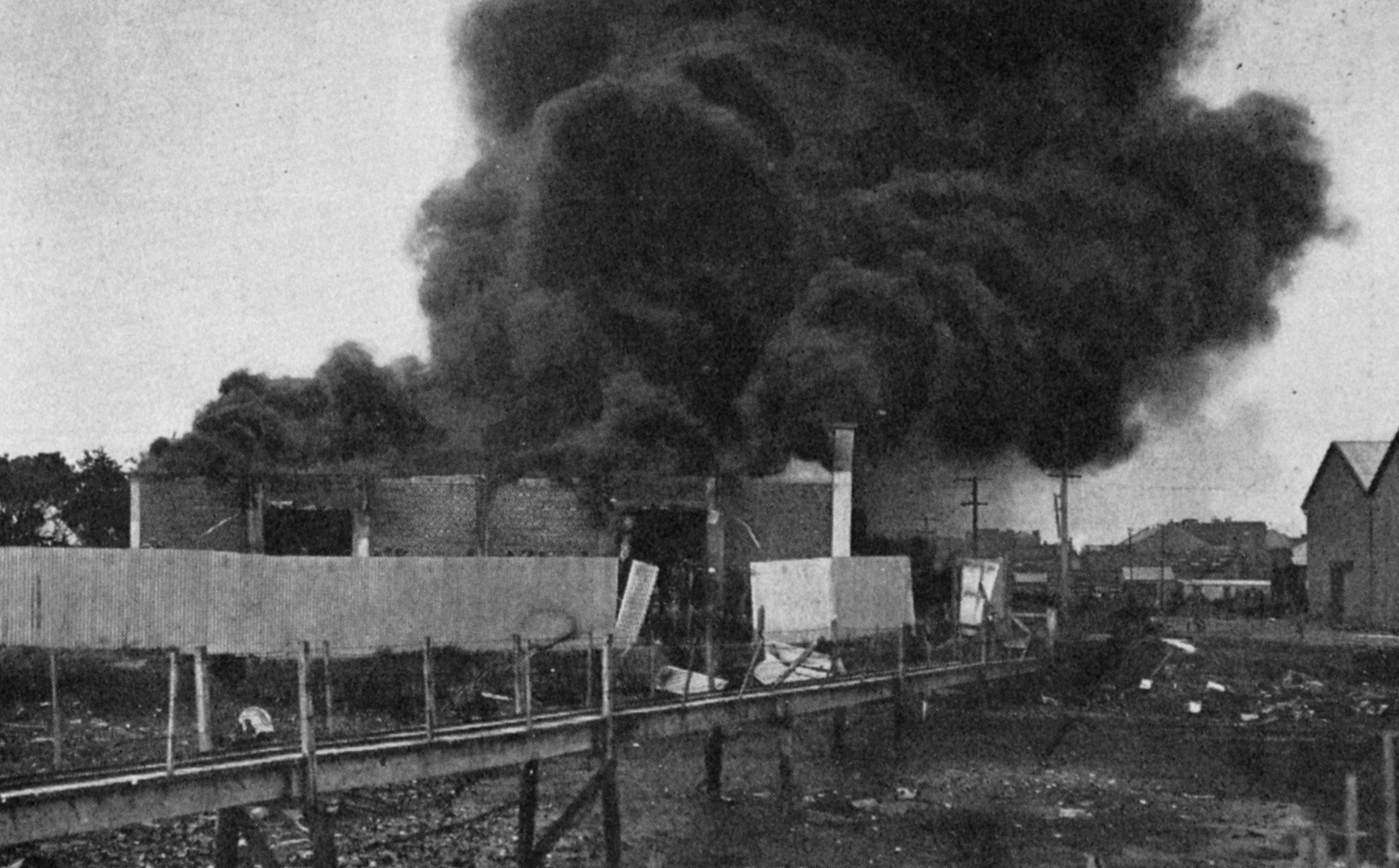
Just as the sun set a huge pall of black smoke commenced to stream across the sky and huge tongues of flames rose hundreds of feet in the air like a great black curtain. The huge volume of smoke poured across the sky with the westerly breeze, and from 5 o’clock to close on midnight it continued without a break. It was only in the late hours that the outbreak showed any noticeable tendency to decrease.

There were at least 20,000 cases of oil stored in the building, of which 16,500 were unloaded from the Kaiwarra and stored away to-day. When the last cases were being stored away the fire was discovered in the front part of the building, and it spread with such appalling rapidity that nothing could be done to save the building. An employee named Smith discovered the place to be on fire and pluckily tried to put it out, but so rapid was the spread of the flames that he was burned about the arms and chest and had to be taken to the hospital tor treatment, where late to-night he was progressing favourably.
In addition to the 20,000 cases of oil, a quantity of lubricating oil was also stored in the building. All the office papers were saved, but the store was irretrievably destroyed. Only the walls are standing, and at a late hour tonight it was still a question whether the front wall would hold and prevent the fire from spreading, but it was then considered that things had taken a more hopeful turn. The greatest danger was the possibility of the fire spreading to two big bond stores across the road — namely the Vacuum Oil Company and A and P Paterson, and elaborate precautions were taken to prevent this happening.
The brigade could bring only one hose into operation, the fire being some little distance from the town water mains, and this solitary stream of water from the gasworks was kept in use for six hours without a stop in hosing the other two stores mentioned, from which huge clouds of steam arose. The brigade is considered to have handled the fire well so far, and if the wall holds out no further danger is anticipated.
Te Rangihīroa theory bears weight
The Maoris’ custom of carrying burdens on the back by the use of two long plaited bands, connected by a cross-band, Dr Buck points out, marks one of the distinctions between the Maoris and other sections of the Polynesians.
The balance-pole, greatly favoured by Chinese gardeners and porters, he states, is used throughout Eastern and Western Polynesia. It is in everyday use in Samoa, Tonga and Niue. Men, women and children may be seen in Niue coming from plantations with loads of bananas, plantains, yams and taros suspended at each end of a pole, balanced across one shoulder.
It never is used by Maoris, but a study of words has convinced Dr Buck that in former times they were acquainted with it. He explains their abandonment of the custom by the theory that they found it inconvenient in New Zealand because most of their fortified places here were on hilltops and it was impossible to keep the balance-pole horizontal in that kind of country.
$34,643.53 (2024) for rabbiting
A rabbiter, who had been operating in Kawarau Gorge, received a cheque tor £285 5 shillings, that amount representing the proceeds of his "catch" during February, March, and April.
— ODT, 10.6.1924 (Compiled by Peter Dowden(












